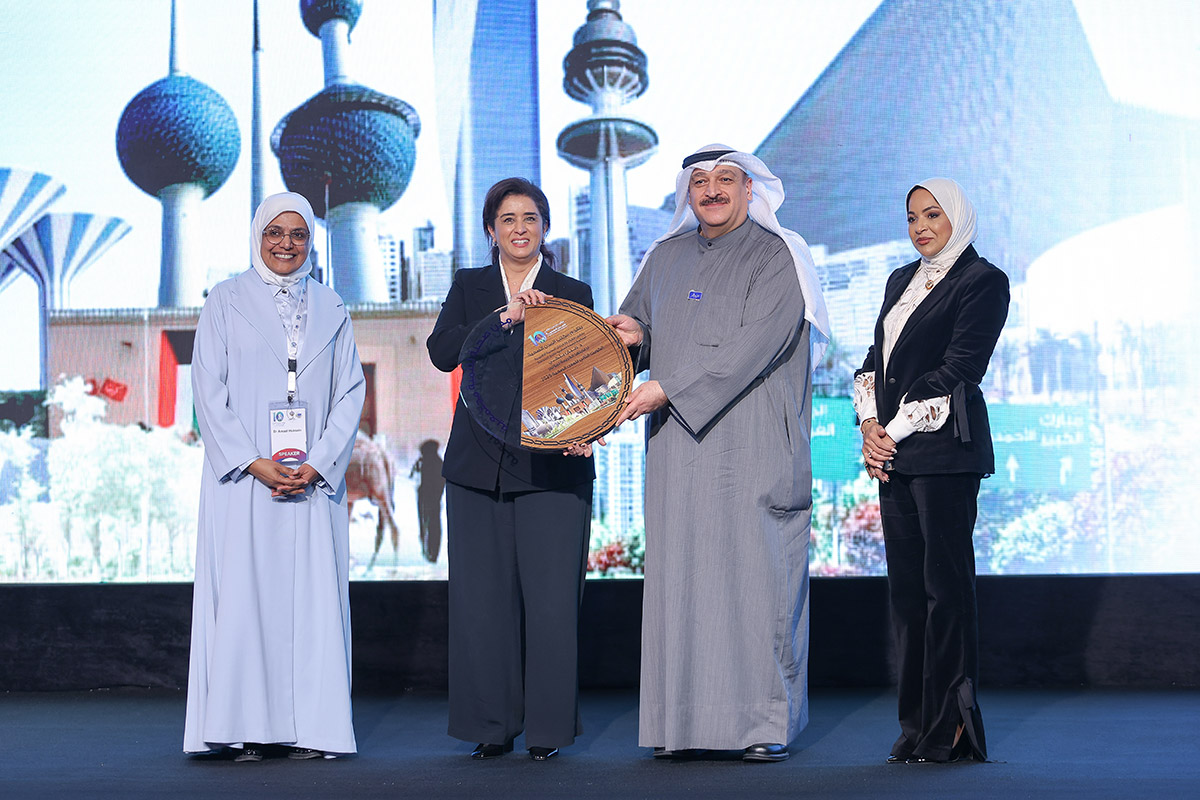
World Health Organization (WHO) Regional Director for the Eastern Mediterranean Dr Hanan Balkhy paid an official visit to Kuwait between 9 and 12 February 2025. During the visit, Dr Balkhy met with senior officials and leaders in the health, industrial, investment, humanitarian and civil society sectors.
Below are some of the highlights of the visit.
WHO collaborates with Kuwaiti civil society organizations
On 10 February 2025, the WHO office in Kuwait convened a roundtable meeting with the Regional Director for the Eastern Mediterranean Dr Hanan Balkhy and key civil society organizations in Kuwait with the goal of strengthening collaboration.
The meeting, held at UN House, brought together leaders from civil society, health advocacy groups and humanitarian organizations to discuss the pivotal role of non-governmental actors in addressing health challenges during crises.
Dr Balkhy emphasized the importance of collaboration, saying: “In humanitarian contexts, civil society plays a critical role in bridging gaps and ensuring that health services reach the most vulnerable populations. Civil society in Kuwait plays a remarkable role in supporting the health, development and humanitarian agenda. WHO is committed to working with civil society to address pressing needs effectively.”
Topics covered in the roundtable discussion included improving access to health care for vulnerable and displaced populations, strengthening health systems to respond to emergencies more efficiently, building capacity within civil society organizations to tackle public health challenges, and fostering partnerships between WHO, civil society and governments for coordinated health interventions.
WHO Representative in Kuwait Dr Assad Hafeez highlighted the value of civil society’s contributions: “Civil society organizations bring important community context and are essential to rapid humanitarian responses. Together with WHO and the government, they can amplify the impact of health interventions.”
The roundtable resulted in a set of recommendations to enhance WHO-civil society collaboration, including establishing regular communication platforms and joint capacity-building initiatives and the joint implementation of a regional framework for health response in humanitarian settings.
The event underscored WHO’s focus on leveraging partnerships to achieve universal health coverage and strengthen health resilience, particularly in crisis-affected areas.
Women leaders roundtable
On 11 February 2025, Dr Balkhy met with women leaders from across Kuwait to discuss the crucial role women play in advancing health outcomes.
The event highlighted Kuwait’s achievements in empowering women and their contributions to health, education and innovation, and featured discussions on fostering gender equity and enhancing women’s participation in leadership roles.
Dr Balkhy praised Kuwait’s progress, saying: “Women in Kuwait are driving transformative change across sectors. Their contributions are essential to building resilient health systems and ensuring equity for future generations.”
WHO Representative in Kuwait Dr Assad Hafeez emphasized the progress Kuwait has made in empowering female leaders. “It is important to sustain this momentum,” he said. “Women are critical to achieving Kuwait’s health goals and sustainable development.”
The roundtable included discussions of ways to strengthen mentorship programmes to nurture female health leaders, enhance opportunities for women in scientific research and innovation and promote regional and international collaboration on gender and health issues.
The roundtable was part of a series of engagements Dr Balkhy undertook during her visit to Kuwait. The visit aimed to strengthen cross-sectoral partnerships for health and well-being.
Innovation roundtable for health and well-being
12 February 2025, Kuwait, Kuwait City – The World Health Organization (WHO) office in Kuwait convened a roundtable discussion gathering leaders from across sectors to engage with Regional Director Dr Hanan Balkhy with the goal of bolstering the innovation ecosystem for health and well-being.
Discussions centered on leveraging public-private partnerships and academic research to address emerging health challenges, foster innovation and strengthen health systems.
“An effective health innovation ecosystem requires the active participation of stakeholders, from academia to the private sector and civil society,” said Dr Balkhy. “It is great to see the progress being made in this regard in Kuwait. WHO calls on all innovators and problem-solvers to get involved.”
WHO Representative in Kuwait Dr Assad Hafeez noted: “The growing innovation ecosystem in Kuwait reflects not only an interest in health innovation but the growing strength of the broader technology ecosystem. This is possible thanks to good policies and invested leadership across sectors.”
The roundtable discussion highlighted opportunities to integrate innovation into health systems, encourage investment in digital health technologies, enhance collaboration on research and development for noncommunicable diseases and build resilient health systems to address emergencies and public health risks.
The roundtable aligned with WHO’s strategic priorities to foster innovation and strengthen universal health coverage.
Related link












